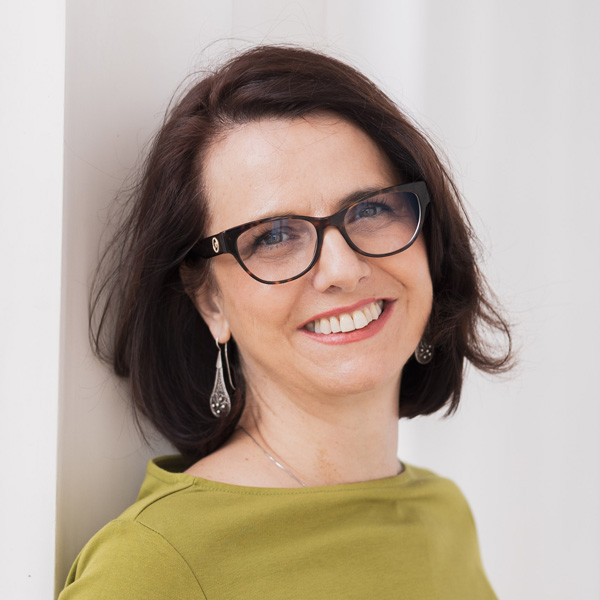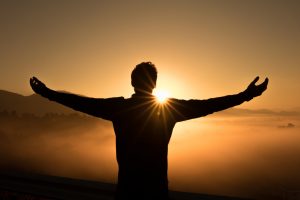When we realize we have the freedom to make decisions that shape our lives, including how we manage our time, it becomes easier to accept responsibility for our choices
BLOG
Four strengths that get you closer to your well-being

Ida Protuger
RELATED
Does the flat organizational structure offer greater well-being?
We live in a time of intense change, where artificial intelligence and technological advancements are transforming the world overnight. This new reality is referred to as a BANI world, characterized as: Brittle Anxious Nonlinear Incomprehensible The BANI world...
Emotions and Leadership: Don’t suppress – learn how to express
Leaders are often burdened with negative emotions and unmet needs, just like everyone else. By mastering EI, particularly emotional regulation, leaders can promote a thriving, results-driven corporate culture.
“I am not what happened to me, I am what I choose to become.” ― Carl Gustav Jung
There are four strengths we all could use to get closer to well-being, a state in which we describe our life as meaningful. How to reach happiness and well-being is a question with no “one-size-fits-all” answer. There is no particular recipe on how to “mix some ingredients” and get happiness ready-made.
The answer to this question, however, unfolds into a most exciting story. Story of you.
Hero’s journey
There is a model that describes fulfilled life through personal transformation. This model is called Hero’s journey.
It originates from Carl Jung’s research on the hero archetype, later on, popularized by Otto Rank and Joseph Cambel’s monomyth theory. In its essence – it is a story template, a structured form that describes personal transformation. Our inner battles and growth towards autonomy and self-fulfillment.
The Hero’s journey provides a framework that guides individuals in understanding that personal growth and transformation are often accompanied by challenges and tension. Still, when the challenge is greater, the personal satisfaction is more fulfilling.
The template always starts with “the call” when we are in front of – a decision to leave a comfort zone and go embark on an adventure. It was like in the fiction stories – when, for example, in Lord of the Rings, Frodo founds a ring or Neo meets Morpheus in Matrix. In real life, we are all same heroes coping with life challenges.
Hero’s journey is a way to reach autonomy. This is a condition to get to the point of being an author and not an actor in your own life. To maximize our capacities to live the life of our dreams. Autonomy is to mature and feel your power to design your life, take control of your actions, and responsibility for your decisions.
Reaching autonomy is not a process of giving up on other people. It is a way to be ok with yourself. This is a precondition to building healthy relationships with others. There is always a trophy in Hero’s journey script when we win this battle. In real life, these are lessons learned as resources. There is not only one journey but many in our lives, either challenges or hardships. So how to develop autonomy and become an author instead of an actor in life?

On reaching autonomy by using our strengths
There are always helpers during the Hero’s journey, and always strengths that we can use. What do we define as strengths?
Strengths could be many things we possess that help us through life and our achievements. It could be our personality traits, knowledge, skills, talents, or values. It could be a combination of all these things. Some strengths in some contexts could become weaknesses. And opposite, some weaknesses in one context could become strengths. If humor, for example, is someone’s strength and that person works in a research laboratory, that could be maybe a weakness in that particular professional environment. But would be strength in his/her social interaction.
That’s why a holistic view of human beings sees a person as a whole and as a source of many resources that we can describe as strengths. There are, however, four superpowers that we could all use as strengths in our Hero’s journeys through life challenges towards autonomy, self-fulfillment, and wellbeing.
These are:
- The power of experience
- The power of choice
- The power of saying NO
- The power of supportive relationships
The power of experience
Every experience, bad or good, enriches our resources, even bad experiences that we didn’t expect give us valuable lessons. They enrich our capacity to provide a different answer in the future. Why don’t we like sometimes new experiences? Because we love our comfort zone that offers safety. On the pyramid of human needs, safety is a basic need. On the top is self-actualization as a psychological need to rich our full potential as human beings. To go to this top, the most valuable resources we have are our experiences. Another reason why we don’t like to go out of our comfort zone is that we are self-confident, or safe there. Trying something new could be exciting, but for some people, it is terrifying because of the fear of the unknown and possible outcomes.
How can we know outcomes if we are trying something for the first time? There is no rehearsal in real life. We experience everything for the first time. Isn’t it better to name bad experiences as a source of a new lesson learned instead of marking them as a failure? Naming them lessons learned offers valuable insight.
The second superpower is the power of choice.

The power of choice
We could use this power to create our life according to our aspirations. Instead, many people let other people choose for them. They are restrained or afraid to take the responsibility for the choice. And indeed, it is not easy.
The power of choice means to take an active position in our lives and towards circumstances. Professor Sonia Ljybomirsky who has researched the essence of happiness concluded that 50 % of people’s happiness is due to genetics, 40 % due to conscious decisions, and only 10 % due to circumstances. So we can not affect genetics or circumstances, but we can make conscious decisions to be close to our well-being using our power of choice.
The power of choice is not that we are able to choose circumstances. But be aware that we could take a position towards those circumstances. When we make a compromise balancing our needs and other people’s needs, be aware that it is our choice to do that.
The power of choice means responsibility and freedom. Freedom to choose what is good for us, who makes us feel good, and positions ourselves to answer the given circumstances.
“Everything can be taken from a man but one thing: the last of the human freedoms, to choose one’s attitude in any given set of circumstances, to choose one’s own way.” – Viktor Frankl
The third is the power of saying no.
The power of saying NO
Born as individuals, but without the possibility to survive and thrive alone, we humans are torn between two fundamental needs. To keep our autonomy and authenticity and to be accepted and confirmed in the community.
In the relationships, there is always ME as an individuum and WE as togetherness (partnership, family, team, etc.). The WE, or “togetherness”, has its own identity. It is a union in which the synergy of the members, their energies, emotions, and information, which are constantly interacting, creates a complex system.
So how is it possible to belong and at the same time stay authentic?
This tension between our fundamental needs to belong and to be authentic could be reduced by setting healthy boundaries. There are our needs that are not healthy to neglect. There are certain values, and interests, that we don’t want to give up from. The power to say NO is an essential tool to set those boundaries.
Why do we often not use this? Because by saying NO, many people think that they could be rejected, labeled as selfish, or left alone. On the other hand, saying yes could be the “ticket” to belonging. No one can protect our interests, needs, and values rather than ourselves.
The last superpower is the power of supportive relationships.

The power of supportive relationships
The most valuable positive relationship is that one with ourselves. To think good about oneself, and to feel good in own “skin”. However, we are created to be social beings. Born as individuals but without the possibility to survive alone, we are predisposed to build relationships. We all have esteem needs and want to be acknowledged and feel authentic in relationships that are meaningful for us. However, in some relationships and in specific environments, we could blow, and in another, we could wither.
Jorge Bucay, an Argentinian psychotherapist explained the influence of relationships on self-confidence in the following story. A young man who suffers from low self-esteem comes to a master and asks for help. The master tells him to do a favor instead. “I have this ring and I want to sell it to repay some debts. Could you please go to the market and sell it, but not less than a piece of gold?”
The young man runs to the market and offers the ring to every man on the market but no one is willing to pay for a piece of gold. Disappointed, the young man goes back to the master and tells him about this unsuccessful attempt. “Then we have to discover the true value of the ring. Please go to the Juvelier, I guess nobody could make the right assessment better than him. Hear the price but don’t sell it, give the ring back to me“. The young man goes to the Juvelier and gets an offer of only 58 pieces of gold.
”You will get probably 70 pieces for that ring but if you are in a hurry, I can offer only 58″.
In disbelief, the young man runs back to the master and tells him what just he’s just witnessed.
Then the master says: ”You are like this ring. A jewel, precious and unique. And only a professional can see your true worth, so don’t expect that everyone can recognize it.”
Surrounded by people that recognize our true value, feel authentic, and nurture a close and caring relationship with ourselves is the use of this fourth power towards our well-being.
How to use these inner strengths?
To use these superpowers means that you are aware that you possess the power to create your life toward the life of “your dreams”. That you have an active position in your life. It is easier to cope with inner monsters like fear and doubt if you are aware of that power.
To raise awareness about these powers is to ask yourself frequently:
- For which new experience I’m thankful today?
- Did I choose how to use this day, or did I let others decide for me?
- Did I neglect my needs or tried to communicate them?
- How successful I’m setting boundaries to protect my authenticity and autonomy?
- Am I on the market and expect anybody to recognize my value, or I’m carefully choosing people that could see my value and I feel authentic and happy in their company?
The moment you accept responsibility for EVERYTHING in your life is the moment you gain the power to change ANYTHING in your life. - Hal Elrod
